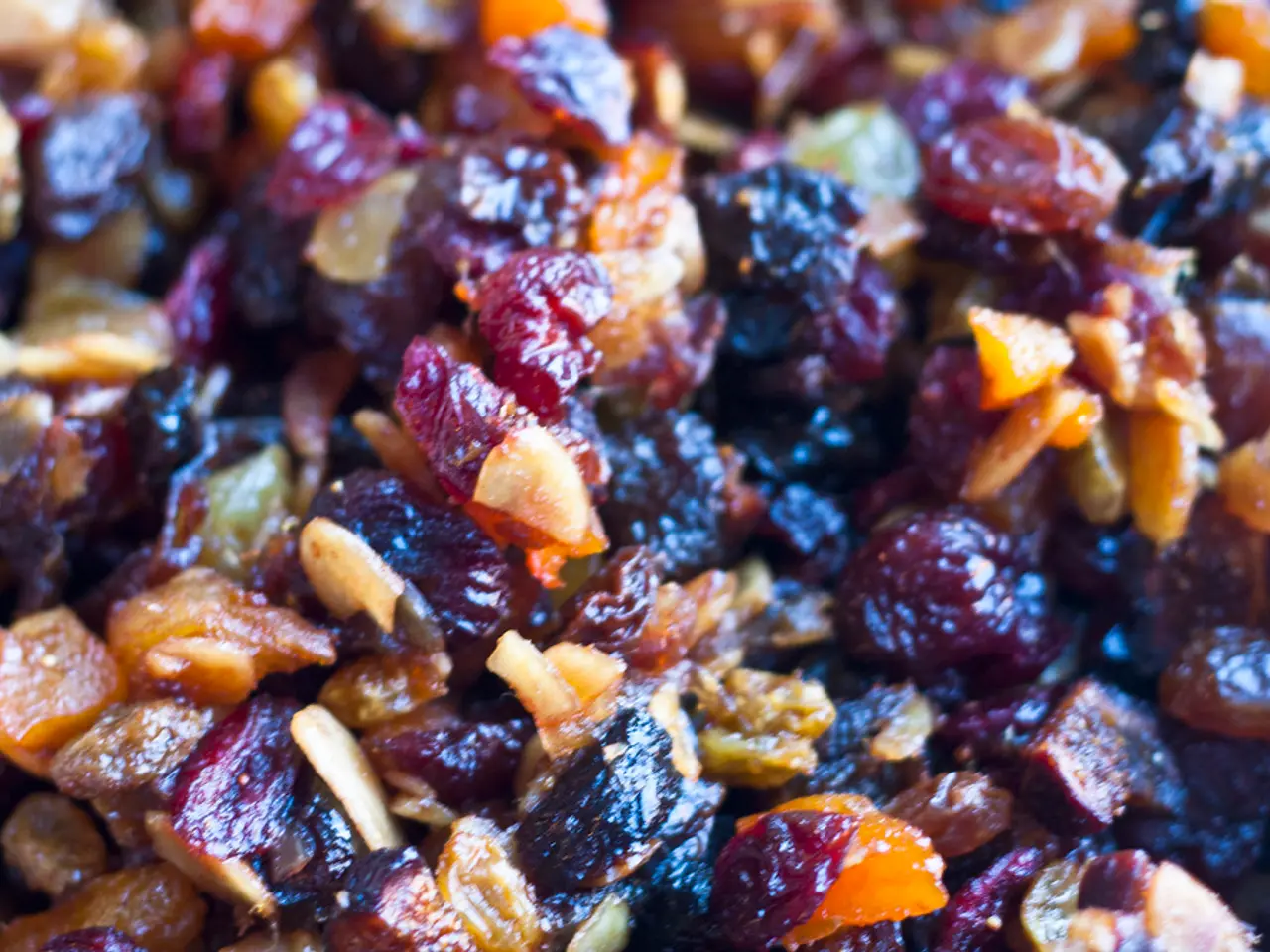Skincare Advice for Radiant and Vibrant Complexion
=====================================================
Maintaining a healthy and radiant complexion isn't just about applying the right skincare products; your diet plays a significant role too. Here are some key dietary tips to help you achieve a healthy skin diet and a glowing complexion.
Firstly, incorporating water-rich fruits and vegetables like cucumbers, watermelons, and oranges into your diet is recommended. Proper hydration preserves skin moisture and suppleness, making your skin look more youthful and vibrant.
Eating antioxidant-rich foods such as berries, dark leafy greens, tomatoes, and green tea is another essential aspect of a healthy skin diet. These foods contain polyphenols and flavonoids that fight free radicals and reduce inflammation, which are major contributors to skin aging and dullness.
Consuming foods high in vitamin A and beta-carotene, like sweet potatoes, carrots, and red bell peppers, is also beneficial. Beta-carotene converts to vitamin A, which is essential for skin cell turnover and repair, helping create a radiant glow and preventing dry or flaky skin.
Including healthy fats and omega-3 fatty acids from sources like avocados, fatty fish, walnuts, chia seeds, and flaxseeds is crucial. These fats support the skin’s lipid barrier, moisturizing it from within and improving elasticity.
Ensuring adequate vitamin C intake through citrus fruits, bell peppers, strawberries, broccoli, kiwi, and leafy greens is vital. Vitamin C boosts collagen synthesis, brightens skin tone, fights oxidative stress, and helps heal wounds.
Incorporating vitamin E-rich foods such as nuts (almonds, walnuts), seeds (sunflower seeds), avocados, and olive oil is also important. Vitamin E protects skin from oxidative damage and deeply moisturizes, supporting overall skin health.
Balancing blood sugar by limiting fast-digesting carbohydrates like white bread, candy, and soda can help reduce inflammation and acne outbreaks.
Consuming foods providing biotin and zinc, which help maintain skin, hair, and nail integrity, is also recommended. Eggs, nuts, seeds, and oysters are good sources of these nutrients.
Vitamin D is also important for skin repair and reducing inflammation; foods include egg yolk, fatty fish, sun-grown mushrooms, and fortified products, alongside sun exposure.
Selenium is an antioxidant that protects skin from damage, and can be found in Brazil nuts, fish, and whole grains.
Reducing intake of sugary drinks and snacks is also advisable, as processed foods, sugar, and unhealthy fats can exacerbate skin conditions and accelerate aging.
Probiotics can help balance your gut microbiome, promoting healthy skin. Including fermented foods like yogurt, kefir, sauerkraut, and kimchi in your diet can help achieve this.
Remember, a healthy skin diet is about nourishing your body with wholesome, natural foods. However, if you have specific skin concerns, consulting with a dermatologist or a registered dietitian is always recommended.
Lastly, cutting down on fried foods and avoiding excessive consumption of highly processed foods is a good practice to maintain a balanced and healthy diet.
- A healthy and radiant complexion can be achieved not only through skincare products, but also through a well-balanced diet that incorporates water-rich fruits and vegetables, antioxidant-rich foods, and foods high in vitamins and healthy fats.
- Essential aspects of a healthy skin diet include hydration, consumption of foods rich in antioxidants such as berries and dark leafy greens, and foods high in vitamin A and beta-carotene like sweet potatoes and carrots.
- Healthy fats and omega-3 fatty acids found in avocados, fatty fish, nuts, seeds, and flaxseeds, are crucial in maintaining skin hydration and elasticity.
- A well-rounded healthy diet also includes adequate intake of vitamins C and E, biotin and zinc for skin health, and probiotics for a balanced gut microbiome, along with limiting fast-digesting carbohydrates, sugary drinks, and processed foods.




